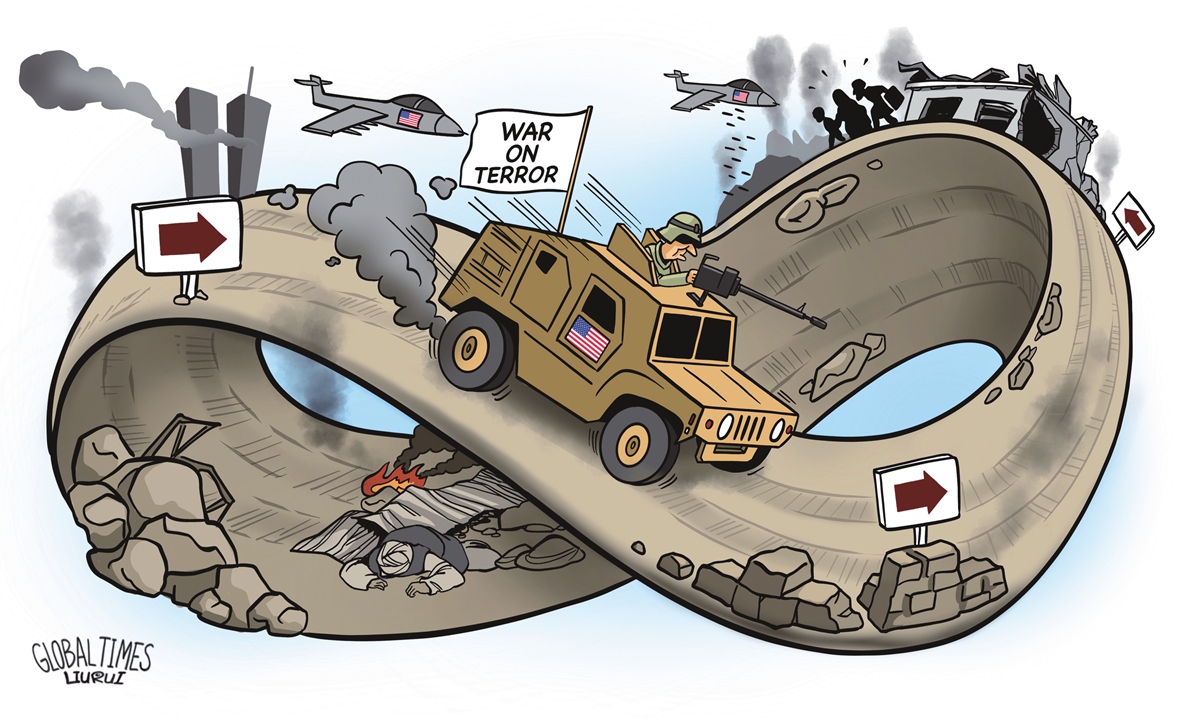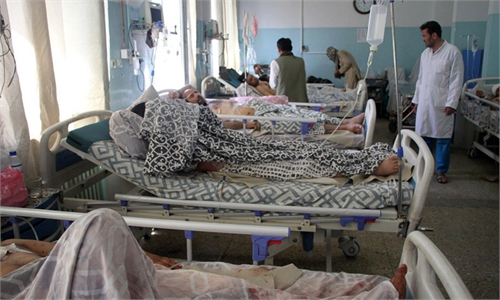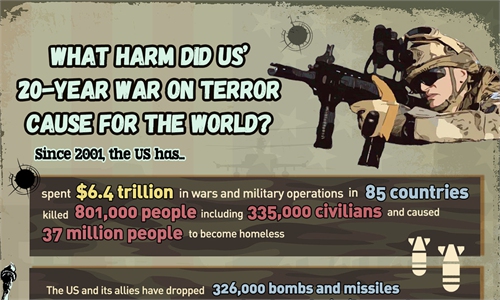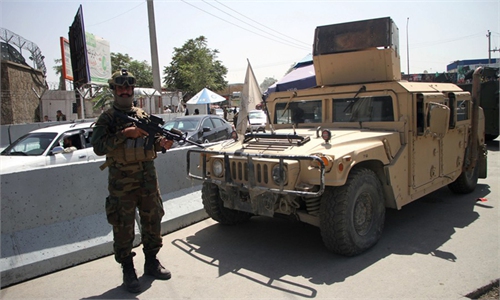
Illustration: Liu Rui/GT
This year marks the 20th anniversary of the terrorist attack on the World Trade Center in New York, after which the US launched its war on terror.In 1975, when I was an exchange student in the US, I was taken to visit the Twin Towers of the World Trade Center in New York. At that time, it was the tallest building in the world, and presented as the "new wonder of the world." In fact, it was purposely designed as a symbol of US world domination.
On September 11, 2001, I was the Editor-in-Chief of Aydinlik Weekly and worked at Ulusal TV Channel, which used to be the only opposition television channel in Turkey at the time. As part of these media outlets, our thesis was that a new era had begun for the US.
During the 2000s, the contradiction between the US claim to world domination and the dynamism of economic development had intensified. At that time, the US ruling classes were plunged into a dilemma that is now heavily debated: either the US would relinquish its world domination and focus on addressing its mounting problems at home, or adopt even more aggressive policies, by launching a so-called "war on terror" in the name of revitalizing its economy and open up new possibilities for capital accumulation through imperialist wars, similar to what happened in the First and Second World Wars.
The financial oligarchy as the backbone of the US ruling clique held the illusion that the collapse of the Soviet Union had led to a "unipolar world." This illusion inspired Francis Fukuyama to hastily declare the "end of history," which much of the intellectual used as fuel to eventually ignite the war on terror, using the terrorist attack on the Twin Towers as an excuse for military adventurism, which was doomed to fail from the very beginning.
However, the era of economic boom, when the US used to account for half of the world's economic conditions in the 1950s, was far behind. US imperialism was already suffering heavy defeats in South Asia, South America and Africa. This was in contrast to China and other developing nations in Asia gaining more economic momentum, even though the US still retained its military influence.
With the liberation of Afghanistan in 2021, US imperialism has finally been able to admit that its "crusade" ended in disappointment and disgrace after 20 years of occupation.
The only thing that has not changed is the persistence of a very narrow clique in the US, who thinks that the US will eventually subdue the peoples of the world with its military power. Their class interests compel them to continue this madness.
The US administration deliberately came up with an obscure concept of "international terrorism." And this concept was used as a justification for the occupation of Afghanistan, Iraq, Libya and Syria. Over the last 20 years, we have understood that this amorphous structure called "international terrorism" is associated with the organizations that the US has facilitated by exploiting and revitalizing ethnic and religious tensions in order to justify its imperialist aggression. Even former US president Donald Trump admitted, on August 11, 2016, that "Obama founded ISIS. And I would say the co-founder would be crooked Hillary Clinton."
First of all, I sincerely congratulate the heroic Afghan people's struggle for independence. We must be very hopeful for the future of Afghanistan. The US and the West inflicted great casualties on Afghanistan and its people. However, from now on, we will see that Afghanistan will not be associated with terrorism. The Taliban organization, which took over the administration in Afghanistan, stated very resolutely that they will not allow their country to be used for the interests of other countries, and that they will not harbor terrorism.
As part of the Shanghai Cooperation Organization (SCO), we must be confident that Afghanistan will make a significant leap forward, picking up momentum from the emerging Asian civilization. Asia's accumulation of civilization, Afghan people's aspirations for a better life, and the SCO's and Turkey's friendly encouragement will help them overcome the difficulties that will arise from some of the ideological shortcomings of the Taliban.
The author is guest researcher at the Center for Turkish Studies, Shanghai University. opinion@globaltimes.com.cn



